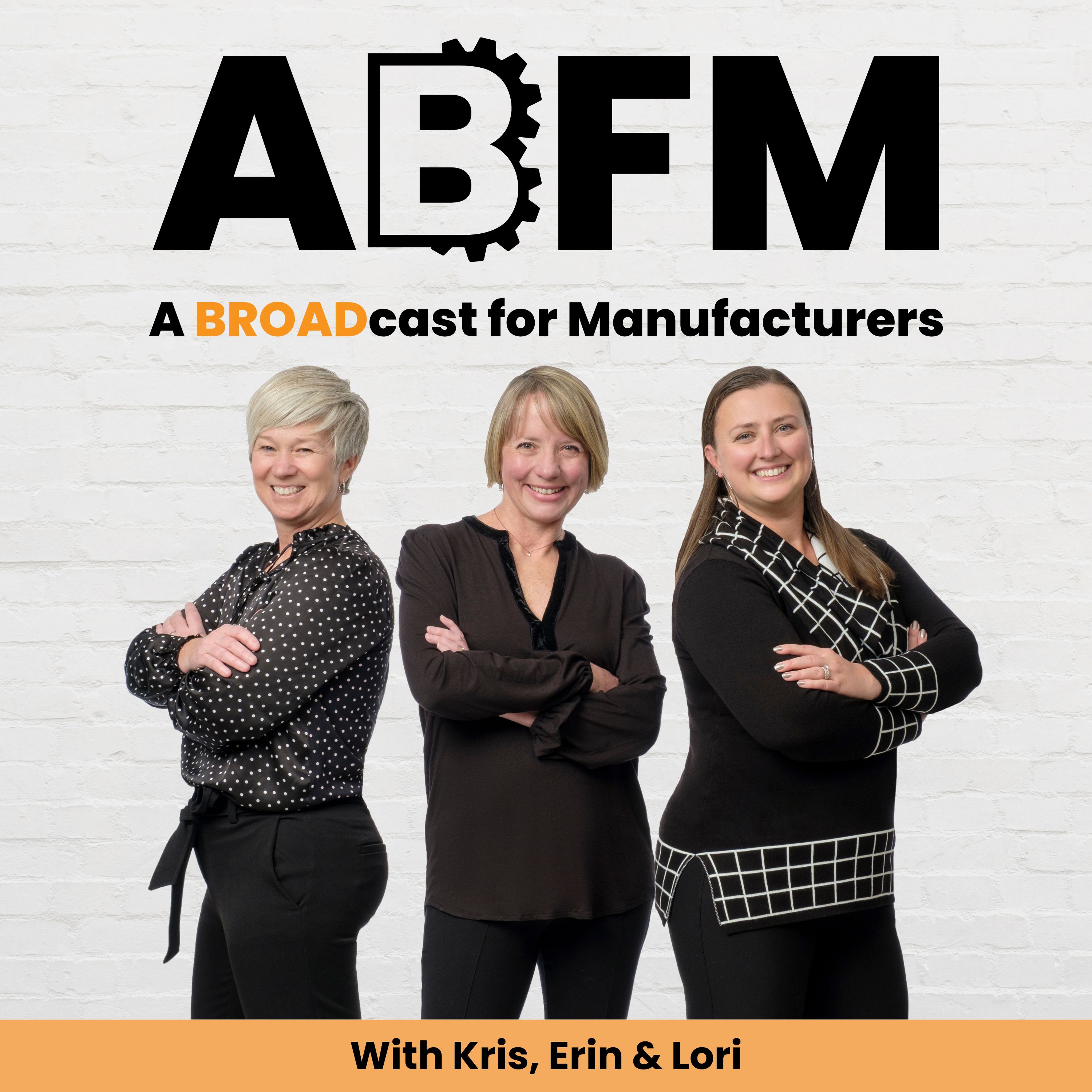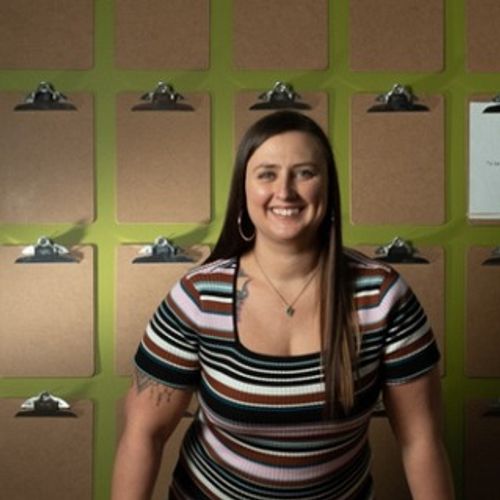Episode 38
38: AI's Role in Reducing Scrap and Maximizing Manufacturing Profit
Read the article here: When will AI usher in a new era of manufacturing?
Lori: Not even getting into the AI component of this, but I was fascinated that this manufacturing process to create diapers. There's 40 separate loose streams to assemble per diaper.
Erin: Just that assembly line, and I'm sure there's a ton of automation within that already. And they're producing 1200 diapers a minute? In 140 different manufacturing lines globally? So when you're talking about data exactly, the amount of of data that they've captured. Exactly. And that's the other thing. They've invested in technology to be able to capture the data. That's step one, so they're not making assumptions. But the other thing that I found fascinating… As they did necessarily just take the raw data and throw it into AI, they actually created different simulated situations where there was an issue that occurred to identify it and try to be a little bit more proactive on how to minimize the downtime of their their machines.
Erin: If there's some way that we could operationalize the dissemination of learning so that the smaller folks have a chance to really exploit the learning that we're getting from AI. I think that'd be awesome.
Lori: Yeah. I mean, I agree with that a hundred percent, and that would be the end goal. To some extent the R and D comes in at the cost of the larger companies and then finds efficiencies that can carry down to the smaller companies.
The article also had a case, which was Siemens, where the opportunity to support those smaller manufacturers as Siemens is actually using the products that they're selling that has AI built within their products. I thought that was kind of cool that they were, they didn't really specify exactly what it was that they were developing or building. But it's basically learning from the production lines, and then the machines themselves will be able to modify that the way that they're producing the equipment. To minimize mistakes and maximize production. So I think that's super cool, but also kind of like scary at the same time.
Lori: Everyone's got their own playgrounds or shared tools being used in the AI space. But a lot of organizations are just creating their own AI. So it's interesting.
Erin: Yeah, it is. And I think that's one of the discussed implications of AI. Iit goes right back to the manufacturing model in the early phases of AI when it was funded as a public good. So the artificial intelligence systems were being built as research for the sake of knowledge, and that information was shared. It was public information in that era, and this is sort of unknown to us. I think largely that era has closed, and so now the market driven development is really the phase that we're in. But we closed the public good development era before, I think, we really reached for the stars with what we can do for the good of humanity and what we could do for the good of all economic drivers.
And so much more…
Connect with the broads!
Connect with Erin on LinkedIn for web-based solutions to your complex business problems!
Connect with Lori on LinkedIn and visit www.keystoneclick.com for your strategic digital marketing needs!
Connect with Kris on LinkedIn and visit www.genalpha.com for OEM and aftermarket digital solutions!
Transcript
Yeah, but I think keeping that sense of wonder about flight is really important, especially as it gets more difficult, you know, like security, it's easy to just kind of nitpick it. And if you can just sit back a moment and be like, well, this is all so incredible and amazing.
It kind of helps with the stress a little bit. Yeah.
[: ence. And when we ran across [: [:So that's 1 answer. And then the other answer is it already has and they gave us some great examples. Yeah. What were your thoughts?
[:One story that I found was fascinating, and I didn't even know this was the one with the diapers.
[: because you have a constant [:So I, I, that was my favorite example because it was the most concrete and I've been through the whole diaper problem journey, what do you want to call it? Yeah. Better diapers. I'm all for it. So yeah, that was really interesting.
[: lready. And they're producing: [: rs are rare. So it's hard to [: [: [: [: [: [: at has AI built within their [:Well, they're robots learning.
[: [: aygrounds or some, you know, [: [:And now it has moved into a privatization, which we have a history of a model where that's where really exciting development happens. But with this technology specifically, jury's out on whether public good will be derived from the current model, which is the, you know, business driven AI development. I don't know.
[: [:A lot of the conversation with AI is pretty woo woo, you know? Yeah. It gets really existential really fast. But with with manufacturing, not only do we need to look at the implications for the individual manufacturers, but for the products that are produced. How will it impact diversity of product availability?
can be completely automated [:They're not poor quality because the automation has been built to, to such an extent that they're all, you know, the joys are reinforced or what? I don't know. I'm not a building person, but what happens then is that you have a competitor who's invested in being able to build those homes and needs to sell a lot of those homes in order to pay back those industry, well, the individual company's expenditures.
And so they will quickly need to outcompete their competitors who are not using that technology. And I think that's certainly something that manufacturers are going to be looking at. You know, what is the competitive landscape once these tools become introduced?
[:I mean, it's changing the landscape. It's not replacing jobs. It's creating new, new jobs. And you have to learn how to use the tools to create efficiency so that, you know, we can produce more, and, and I could go on this tangent for a very long time. I'm not going to.
[: [: [:Because yeah, you're not a Siemens. You know, you're not a Procter and Gamble, perhaps. That doesn't mean that you don't have a business that you need to run intelligently. As Lori just so beautifully put it, and there are tools and it's marketing and it's many other places available to help you do that.
are. Yeah. So it's about the [: [: [:And we were all there. We all got sucked into that. And I think that we, you know, lesson learned. Yeah. Think first about the problems that you want to solve. Then look for a tool that will help you solve that problem. Do not let yourself be drawn in by possibilities you hadn't even considered because somebody is sending you a really nice pitch deck.
[: [:That's been, that's been dispelled a bit. That's not exactly correct. However. There are parts of the brain that do master some of these things that seem sort of beyond consciousness. You know what your personality, for example, you know, we've heard the examples of someone who will have brain damage and then their personality will change dramatically.
brain or on the other. And I [: [: [: [:All right. So I know I always like to go AI route, but since we had a healthy conversation on AI, I'll skip it today. Oh, sure.
But I just learned that you [:So that was a huge spike for them. Wow. So I'm wondering how many other platforms. Where there's a lot of sharing, password sharing are going to go, wow, that increased our revenue significantly. We should do that.
[: [: [: [: [: [: [: [: [: [: [: [: [: [: [:We've got a great offer specifically for our listeners. You can find more information about the offers and your hosts at mfgbroadcast. com




